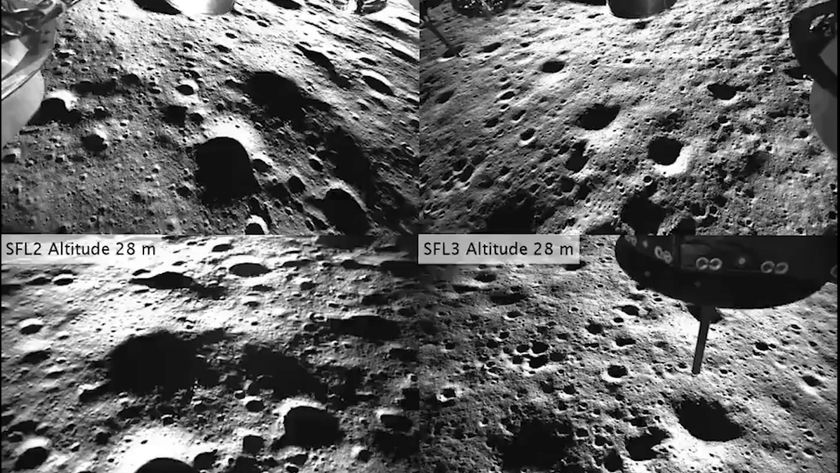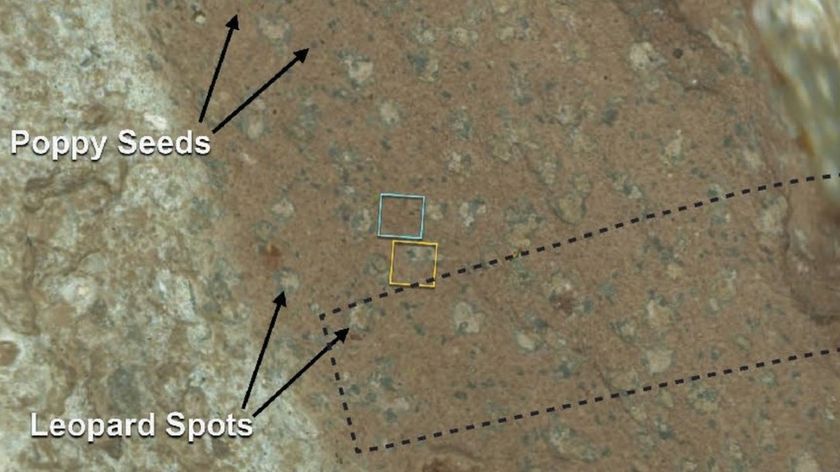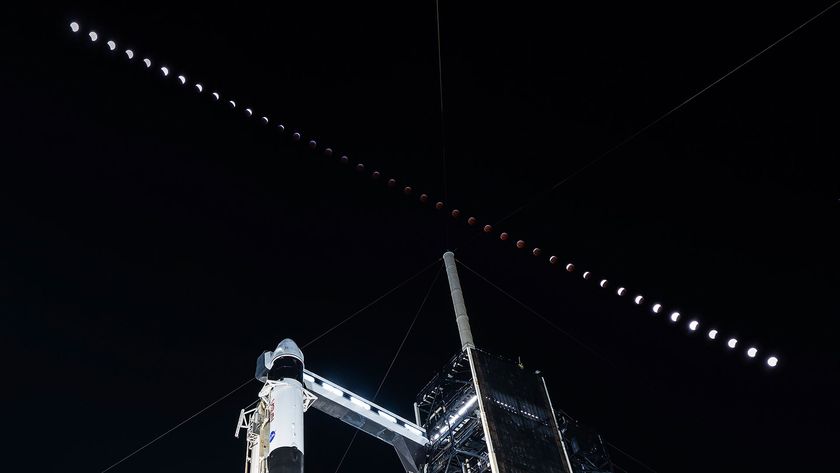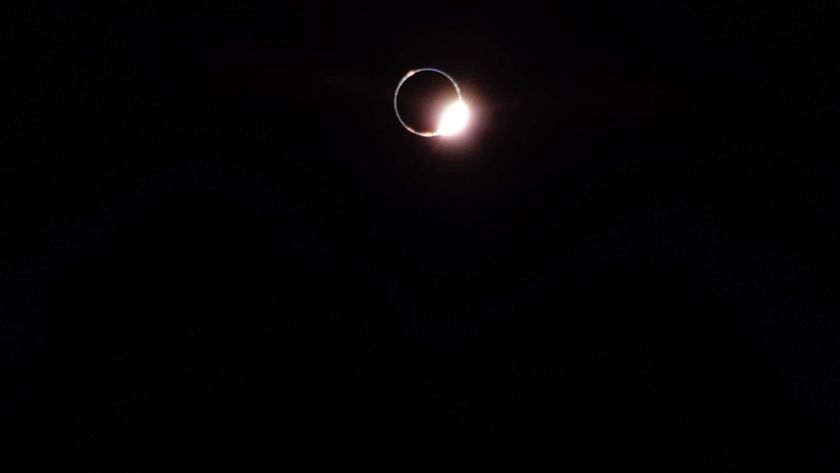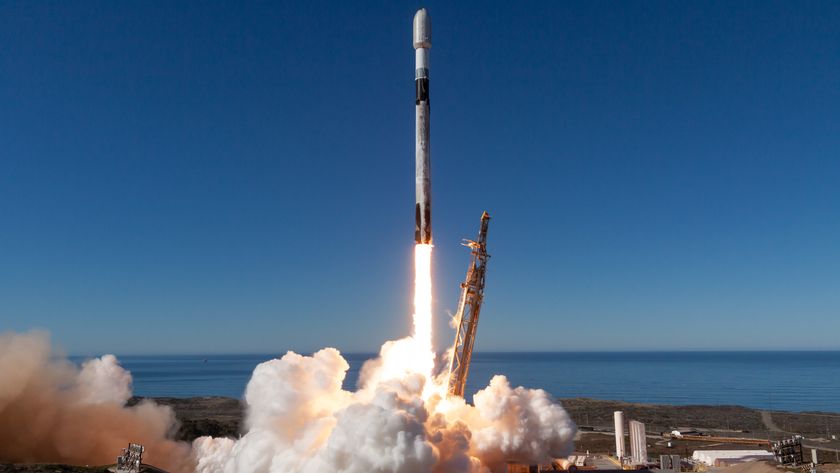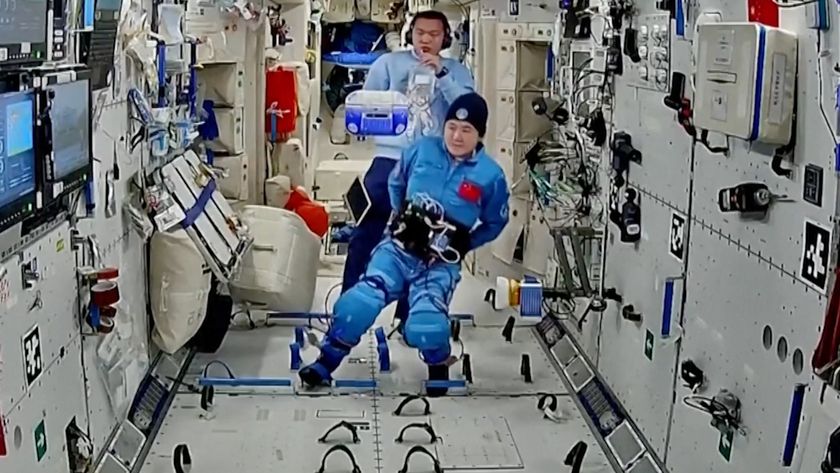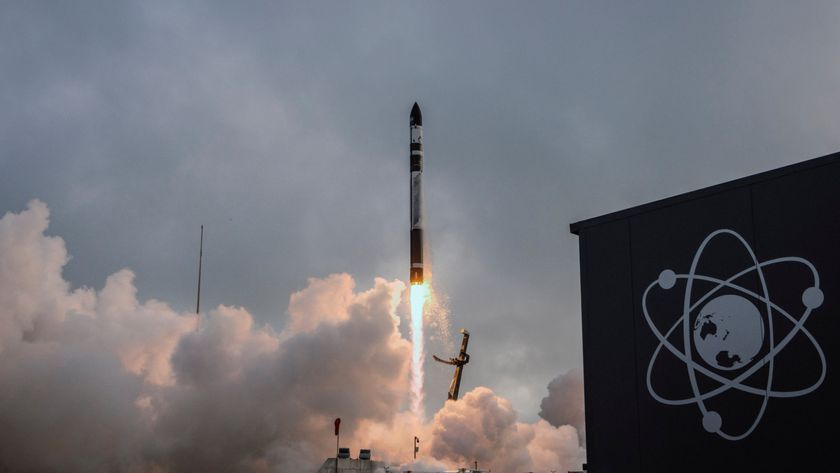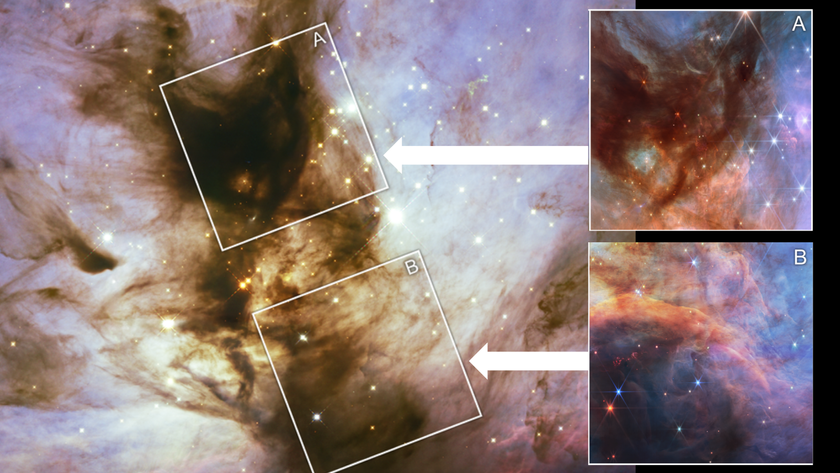Earth Scientists Are Freaking Out. NASA Urges Calm.
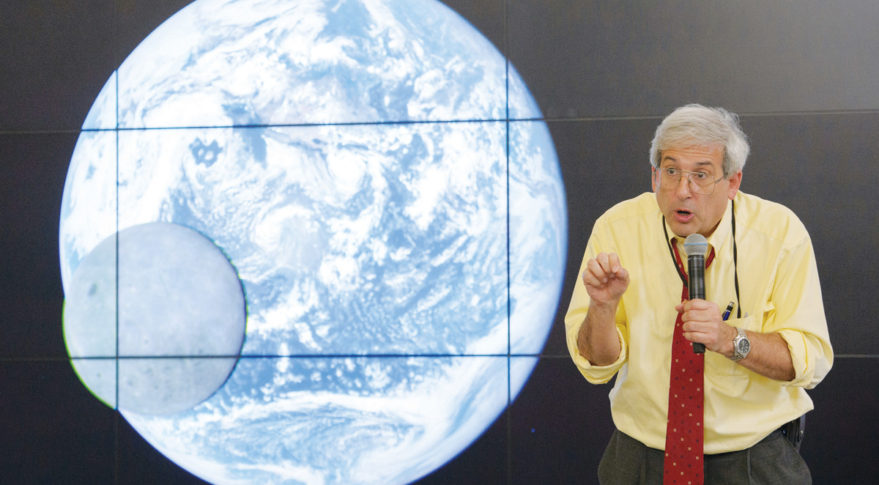
At a time when NASA earth scientists are concerned their research may be scuttled by the incoming Trump administration, the space agency's top science official is preaching pragmatism and unity.
The names of the two key Trump administration figures who will have the most significant impact on NASA's future — the new NASA administrator and the director of the White House Office of Science and Technology Policy — have not been announced. To put that in scientific terms, all the rumor and discussion swirling around the scientific community about NASA's future under a Trump presidency is noise, "not signal," said Thomas Zurbuchen, who took over as the leader of NASA's Science Mission Directorate in October.
"You are leaders in your community, please be a source of signal, not a source of noise," Zurbuchen said Dec. 12 during the annual Earth Science Town Hall meeting at the American Geophysical Union conference in San Francisco. [Analysis: The Biggest Space Issues Facing the Trump Administration]
Although it is possible that NASA's Earth Science program "might get somewhat smaller in the new administration, it is not at all obvious to me that is going to happen," said Michael Freilich, NASA Earth Science Division director. "I am actually optimistic the benefits will be recognized as they have in the past."
"You have earned tremendous credibility from your work over the years," Freilich said through a two-way internet link that allowed him to interact with people at the town hall from Cape Canaveral Air Force Station in Florida, where he was awaiting the launch of NASA's Cyclone Global Navigation Satellite System. "You earned that credibility by being good scientists, by being logical, attacking problems and letting the data speak for themselves. We don't do policy in NASA. We provide the information for all the policymakers to draw their own conclusions."
Even if NASA's Earth science program shrinks, scientists should focus diligently on their work instead of "spending time pining for what could have been," Freilich said.
Zurbuchen also emphasized the importance of producing high-quality research. "Let's behave like scientists and deal with absolute ethics with our science," he said. "At the end, history will judge us by whether we did the right thing."
Get the Space.com Newsletter
Breaking space news, the latest updates on rocket launches, skywatching events and more!
Funding for NASA's Earth science program has traditionally waxed and waned with changing administrations. Funding as a percent of NASA's overall budget declined sharply from 2001 to 2006, the early years of the George W. Bush presidency, dipping from about 11 percent of NASA's budget to six percent. It was not until NASA's first Earth science decadal survey published in January 2007 declared that the space agency's Earth-observing satellite system "was in danger of collapsing" that funding began to rise, Freilich said.
Since 2007, NASA's Earth science budget has climbed back up to comprise about 10 percent of the agency's budget, nearly $1.93 billion in 2016. With the money appropriated since 2007, NASA has "truly revitalized our space-based Earth-observation system," Freilich said.
NASA has 19 major Earth science missions flying on satellites and instruments mounted on the International Space Station. The space agency plans to launch about 20 Earth science missions between late 2016 to 2023, including small satellites, cubesats and space station instruments. "We will continue launching several missions per year on average," Freilich said. [50 Years of Presidential Visions for Space Exploration]

No Ordinary Time
NASA's Earth Science Division also is working with other U.S. government agencies to identify Earth-observation data they are interested in acquiring in 2017 through a new program, Interagency Satellite Needs-Collection Process, led by the White House Office of Science and Technology Policy.
"We have embraced that process," Freilich said, noting that agencies have submitted requests for 77 data products that NASA might be able to obtain from Earth-observation satellites. "Perhaps subtle changes to our programs could address the needs of other federal agencies," Freilich said. "In a time of transition, demonstrating that we do support other agencies is of paramount importance."
That type of comment was a clear indication that this was no ordinary town hall, which traditionally is a relatively well-attended meeting of scientists keeping tabs on NASA's Earth science portfolio. This year, many scientists claimed seats in the meeting room before the previous session ended. By the time Freilich began to speak, every seat was filled and latecomers lined the walls. [In Photos: NASA's 16 Best Earth Photos from Space by Astronauts]
Scientists in the room clearly recognize their work could be affected by the incoming administration, which includes cabinet nominees skeptical of climate change and a space policy adviser, Robert Walker, former chairman of the U.S. House of Representatives Science Committee, who has publicly questioned the value of NASA's Earth science work.
While NASA officials did not mention any names or specific threats to the future of the agency's Earth science program, Zurbuchen preached unity. "United communities are a lot harder to beat," he said Dec. 13, during NASA's Planetary Science Town Hall. "Lets stick together and stick up for each other. Together our narrative is a lot stronger than any small narrative any one of us could come up with in a small segment of the community."
Since it is not clear how NASA programs will fare in the coming years, it is natural for scientists to feel worried, Zurbuchen said. Nevertheless, he is operating under the assumption that "when everything is said and done, we will have a community that does Earth science."
"Earth is a planet that is worthy of scientific investigation and discovery," Zurbuchen said. "The research not only teach us about nature, but it also affects our lives directly on a daily timescale, a yearly timescale or beyond."
NASA's Earth science research also ties in with much of the agency's other work. "When we are thinking about other planets or the early solar system, the Earth is an important part," Zurbuchen said. "The instruments that we are flying elsewhere were invented to look at the Earth first."
Instead of speaking in general terms about the benefits of NASA's Earth science program, Zurbuchen told scientists to point to concrete contributions of their work. On Nov. 29, for example, Louisiana experienced severe thunderstorms and tornadoes while wildfires broke out in Tennessee. Space-based sensors developed by NASA helped firefighters battle the Tennessee blazes and assisted forecasters in Louisiana.
Pointing to that type of vivid example helps people understand the value of Earth science instruments such as the the Geostationary Lightning Mapper developed by NASA and flying on the National Oceanic and Atmospheric Administration's Geostationary Operational Environmental Satellite-R. "That instrument is on that GOES-R spacecraft because NASA invests in these kinds of instruments and matures them until the day when they change our lives," Zurbuchen said.
Zurbuchen told SpaceNews that his emphasis on making NASA's scientific work concrete is not a reaction to the changing presidential administration, but rather a reflection of his background.
Before becoming NASA's associate administrator for science, Zurbuchen was a scientist whose research focused largely on solar and heliospheric physics. As a professor at the University of Michigan, he also established the Center for Entrepreneurship in the College of Engineering.
Entrepreneurs focus on solving a problem for a community in a way that changes lives, Zurbuchen said. When he looks at NASA programs, Zurbuchen said he wants to see the data showing how the agency's work is solving programs for farmers or helping other groups.
"That's how I look at the world," he said.
This story was provided by SpaceNews, dedicated to covering all aspects of the space industry.
Join our Space Forums to keep talking space on the latest missions, night sky and more! And if you have a news tip, correction or comment, let us know at: community@space.com.
Debra Werner is a correspondent for SpaceNews based in San Francisco. She earned a bachelor’s degree in communications from the University of California, Berkeley, and a master’s degree in journalism from Northwestern University. Debra is a recipient of the 1989 Gerald Ford Prize for Distinguished Reporting on National Defense. Her SN Commercial Drive newsletter is sent out on Wednesdays.

